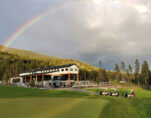Be careful about ‘naming and shaming’ those charged with drunk driving
By Medicine Hat News Opinon on December 11, 2018.
It’s completely understandable why some police forces are resorting to “naming and shaming” people charged with impaired driving. No matter what they do, far too many keep getting behind the wheel while under the influence. So we’re sympathetic to the efforts of police, especially those in York Region who this past week started posting online the names, ages and towns of everyone they charge with driving while impaired by alcohol or any other drug. York was the scene of an appalling case of drunk driving just over three years ago, when Marco Muzzo plowed into a car while driving way over the limit, killing three young children and their grandfather. It was a hideous crime and it traumatized the community. But there are two big problems with what York and some other police forces are doing. First, there’s no actual proof that naming and shaming actually does what it’s supposed to do — deter others from getting behind the wheel when they shouldn’t. And second, posting the details of everyone charged with driving under the influence skips over the fundamental fact that all these people are presumed innocent until found guilty under our legal system, and some of them will surely not be convicted in the end. On the first point, it’s remarkable that there’s no solid research to demonstrate that naming and shaming deters impaired driving. This may be a fairly new practice in Ontario, but it’s been tried in many U.S. cities and states, where the public appetite for vengeance against wrong-doers tends to be greater than it is in these parts. Yet, according to MADD Canada, the country’s premier organization dedicated to fighting the scourge of impaired driving, there is no reliable data on whether such practices actually reduce this crime. “Does it work?” asks MADD CEO Andrew Murie. “We don’t know.” Deterrence of others must surely be the point of any campaign to publicize the names of impaired drivers. Those charged, and especially those convicted, will suffer all the penalties that come with that: ruined reputations, lost jobs, suspended licenses, fines, possibly jail time. The point of naming and shaming is to shock anyone else tempted to have that one extra drink before getting into the car to say no, or to leave the car behind and call a cab. If it accomplished that goal, we would presumably see declining rates of impaired driving in areas that name and shame. But there’s no evidence of that. On the second point, the presumption of innocence is at the heart of our legal system. Police and the Crown must prove someone committed a crime; that’s why we have courts and trials. Encouraging authorities to publicize every charge, exposing those involved to community ridicule and possibly retribution even before they’re found guilty, undermines that basic principle. It’s worth noting that many U.S. jurisdictions that practice naming and shaming (like making people clean up roads while wearing a vest emblazoned with “I’m a drunk driver”) do it only for those convicted of the crime — not for everyone who’s charged. Even they appreciate the crucial difference. All that being said, we can fully appreciate why York Regional Police are taking this extra step. Even in the wake of the horrific Muzzo case, the number of impaired drivers in the region keeps going up — to 1,400 so far this year from 1,200 at this time last year. “We’re at our wits’ end,” York Police Insp. Ed Villamere told CBC’s Metro Morning this week. Legalization of cannabis adds an extra worry for police and the public. Drivers were out there stoned before legalization, but there’s a concern those numbers may be on the rise as well. Fortunately, police now have stronger authority to check on drivers; they can demand a breath sample from anyone they stop legally, not only those they think have been drinking. That means there’s a greater chance this holiday season that you might be stopped after that office party or Christmas gathering. All the more reason to do the only sensible and moral thing: if you’ve been drinking, simply don’t drive. — Toronto Star 16-15




